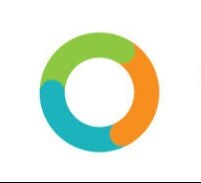Single-use coffee cups: 10 minutes on the lips, a lifetime in the tip
Is the opportunity to win a coffee each week for a year enough to encourage people to bring their own reusable mugs to their favourite café? It’s a question Taupō District Council’s waste minimisation officer Shannon Hanson was seeking to answer when she introduced the Choose to Reuse Challenge.
“What are you doing about single-use coffee cups?” It’s a question that’s likely to elicit a sigh from solid waste staff in most councils across the country.
Why is it that coffee cups, or other single-use cups (SUCs), have become such a bug bear in the waste community? They’re certainly not filling up our landfills in the staggering tonnages that timber and organic waste are. And yet, they still feel worthy of our attention. New Zealanders send about 295 million single-use coffee cups to landfill per year. And for me, personally, the bug bear lies in the fact that they represent all that is wrong with waste consumption today. They are an item produced to cater for our laziness and convenience. We use them for 10 minutes and then into landfill they go forever.
There are a number of SUC-free initiatives already in existence, from mug libraries to app-based borrowing schemes like Again Again. These primarily rely on cafes to bear the brunt of the responsibility, despite the majority of customers owning a reusable cup. Recent research from Waste-Ed with Kate in Thames-Coromandel, Hauraki, and Matamata-Piako Districts found that ~84% of survey respondents own a reusable cup but only 25% “always’ use it versus 75% who ‘sometimes’, ‘rarely’, or ‘never’ bring their own cup. So I decide to shift my attention from café-driven initiatives and wanted to create something that would be customer-focused and drive behaviour change.
Introducing the Choose to Reuse Challenge. The challenge was introduced for the month of July 2025 in 38 participating cafés in Taupō, Tūrangi, and Mangakino. Cafés were provided with loyalty cards and a stamp. If a customer brought in their reusable cup for their drink purchase, they received a stamp and when they received five stamps
cup for their drink purchase, they received a stamp and when they received five stamps
they’d turn the card into the café. Submitted cards went into the draw to win one of four
vouchers of $260 at the café of their choice, which we advertised as free coffee for a year (one $5 drink per week comes out to $260).
At the end of the challenge, we received 540 cards which amounts of 2700 single-use cups. All-up I believe there would be closer to 3,000 cups avoided, considering some cards would have been part-filled and not submitted. This amounts to roughly 30kg – in itself, nothing to write home about. But the challenge did provide an opportunity to receive feedback, which has given me useful information about both the customers’ and cafés’ relationships with single-use coffee cups.
I sent out a feedback survey and received responses from 53 participants and 6 cafés. When asked if the challenge changed participants’ reusable cup use, 51% responded that they used their reusable cup more and 43% said they used their cup about the same amount as usual. Additionally, 50% of cafés noted an increase in reusable cup use.
Far and away the most popular motivation for reusable cup use was “environmental reasons/reducing my single-use footprint”, with 74% selecting this option. Although others submitted entries that their motivation is related to keeping their drink warmer for longer or avoiding chemicals in SUCs.
I also inquired whether a discount would encourage participants to use their reusable cup more. 38% said a 50 cent discount would do this, followed closely behind by 34% saying that a discount wouldn’t impact their use. An additional 19% said a $1.00 discount would encourage increased cup use. When cafés were asked if they offer a discount, 50% said they offer a 50 cent discount, 33% said they offer one less than 50 cents, and 17% said they don’t offer one. All cafés responded with interest in offering a discount if they didn’t already.
Finally, when participants were asked what would lead them to use a single-use cup over a reusable cup, an astounding 85% responded “I forget my reusable cup”. This highlights the issue we’re facing with waste minimisation behaviour change, with everything from grocery bags to BYO containers. It’s not a lack of reusable bags or reusable cups that we need to focus on – it’s somehow getting people to form habits that prioritise waste reduction in a world where we’re busy and forgetful. Not an easy feat but one that our sector needs to continue to explore.
Initiatives like the Choose to Reuse Challenge are important for providing insight we didn’t have before but prize-based challenges may only change long-term behaviours for a small percentage of participants. But will these types of efforts be the magic bullet to fix the issues with single-use cups facing our country? Probably not. If a magic bullet existed in this space, we’d already be using it to solve the issue. Ultimately, I believe cafés and councils taking their own individual actions in the SUC-free space won’t be enough to elicit change until we have national mandates from Central Government to support them.
About the author:
Shannon Hanson is a Waste Minimisation Officer for Taupō District Council and has 5 years of experience in the industry.
If you’re interested in launching your own Choose to Reuse Challenge, or a similar initiative, please get in touch with Shannon (shanson@taupo.govt.nz)





